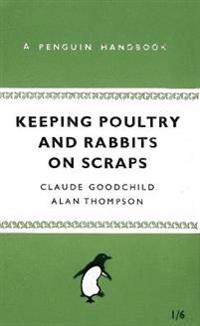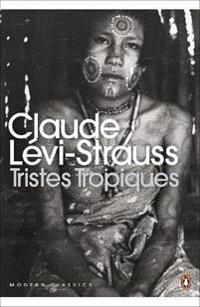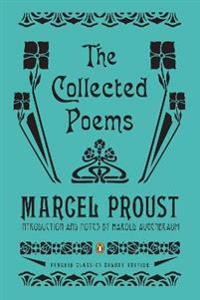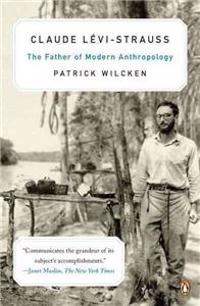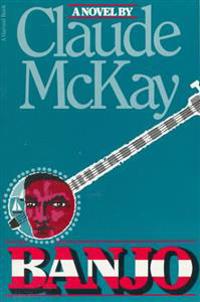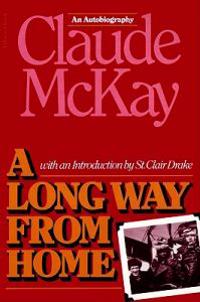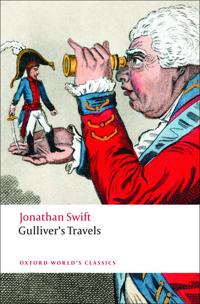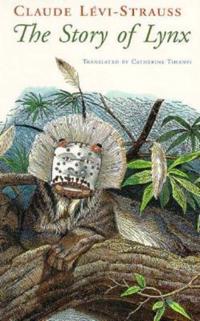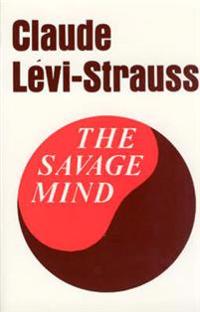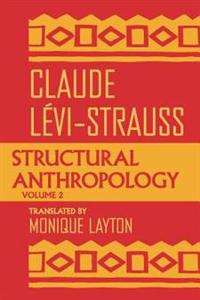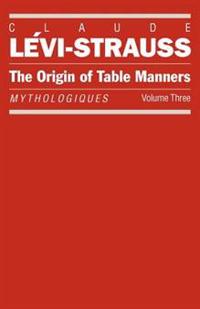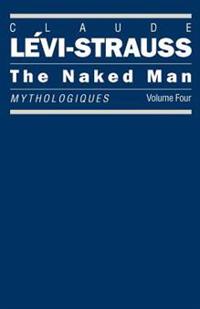Keeping Poultry and Rabbits on Scraps (Pocket)
avClaude Goodchild, Alan Thompson
ISBN: 9780141038629 - UTGIVEN: 200811First issued in 1941, when the national crisis made it essential for every scrap of kitchen waste and spare time to be used for increasing the nation's food resources, this book enabled the meagre official wartime rations to be supplemented in thousands of homes by a regular supply of eggs and meat,[...]
Tristes Tropiques (Häftad)
avClaude Levi-Strauss
ISBN: 9780141197548 - UTGIVEN: 201109"Tristes Tropiques" begins with the line 'I hate travelling and explorers', yet during his life Claude Levi-Strauss travelled from wartime France to the Amazon basin and the dense upland jungles of Brazil, where he found 'human society reduced to its most basic expression'. His account of the people[...]
The Collected Poems (Pocket)
avMarcel Proust, Claude (CON) Francis, Fernande (CON) Gontier
ISBN: 9780143106906 - UTGIVEN: 2013-03As a young man, Proust wrote both poetry and prose. Even after he embarked on his masterful "In Search of Lost Time" at the age of thirty-eight, he never stopped writing poetry. His verse is often playful, filled with affection and satire, and is peppered with witty barbs at friends and people in hi[...]
Claude Levi-Strauss: The Father of Modern Anthropology (Häftad)
avPatrick Wilcken
ISBN: 9780143120629 - UTGIVEN: 2012-01When Claude Levi-Strauss passed away in 2009 at age 100, France celebrated the life and contributions of not only a preeminent anthropologist, but one of the defining intellectuals of the 20th century. Just as Freud had shaken up the antiquarian discipline of psychiatry, so had Levi-Strauss revoluti[...]
The Urban Experience (Häftad)
avClaude S. Fischer, Robert K. Merton
ISBN: 9780155934986 - UTGIVEN: 1984-03Banjo (Häftad)
avClaude McKay
ISBN: 9780156106757 - UTGIVEN: 1970-10Lincoln Agrippa Daily, known on the 1920s Marseilles waterfront as "Banjo," prowls the rough waterfront bistros with his drifter friends, drinking, looking for women, playing music, fighting, loving, and talking - about their homes in Africa, the West Indies, or the american South and about being bl[...]
A Long Way from Home (Häftad)
avClaude McKay, St Clair Drake
ISBN: 9780156531450 - UTGIVEN: 1970-03McKay's account of his long odyssey from Jamaica to Harlem and then on to France, Britain, North Africa, Russia, and finally back to America. As well as depicting his own experiences, the author describes his encounters with such notable personalities as Charlie Chaplin, George Bernard Shaw, H. G. W[...]
Elements of Psychophysical Theory (Pocket)
avJean-Claude Falmagne
ISBN: 9780195148329 - UTGIVEN: 2002-08-08The Biology of Human Survival (Inbunden)
avClaude A. Piantadosi
ISBN: 9780195165012 - UTGIVEN: 200310The range of environments in which people can survive is extensive, yet most of the natural world cannot support human life. The Biology of Human Survival identifies the key determinants of life or death in extreme environments from a physiologist's perspective, integrating modern concepts of stres[...]
Claude Lanzmann's Shoah (Pocket)
avStuart (EDT) Liebman
ISBN: 9780195188646 - UTGIVEN: 2007-03Claude Lanzmann's monumental Shoah is the most celebrated film about the Holocaust ever made. For eleven years, Lanzmann traveled the world in search of those witnesses closest to the agony of the Jews of Europe during the Nazi terror. In superbly conducted, detailed interviews, rendered in searchi[...]
God, Gulliver and Genocide: Barbarism and the European Imagination, 1492-1945 (Inbunden)
avClaude Rawson
ISBN: 9780198184256 - UTGIVEN: 2001-05-31Isaiah Berlin's Liberalism (Inbunden)
avClaude J. Galipeau
ISBN: 9780198278689 - UTGIVEN: 1994-02-24Demographic Transition, The: Stages, Patterns, and Economic Implications (Inbunden)
avJean-Claude Chesnais
ISBN: 9780198286592 - UTGIVEN: 1992-12-17Public Procurement Reforms in Africa (Inbunden)
avChristine Leon De Mariz, Claude Menard, Bernard Abeille
ISBN: 9780198714910 - UTGIVEN: 2014-10Institutional reforms and their contribution to development and growth have been a source of renewed interest as well as of many challenges over the last two decades. Identifying the forces that push towards reform and the conditions that determine the success or failure of reforms, building organiz[...]
From Mother to Son: The Selected Letters of Marie de l'Incarnation to Claude Martin
ISBN: 9780199386581 - UTGIVEN: 2015-06Marie de l'Incarnation (1599 - 1672), renowned French mystic and founder of the Ursulines in Canada, abandoned her son, Claude Martin, when he was a mere eleven years old to dedicate herself completely to a consecrated religious life. In 1639, Marie migrated to the struggling French colony at Qu[...]
Gulliver's Travels (Pocket)
avJonathan Swift, Claude Rawson, Ian Higgins
ISBN: 9780199536849 - UTGIVEN: 200808'Thus, gentle Reader, I have given thee a faithful History of my Travels for Sixteen Years, and above Seven Months; wherein I have not been so studious of Ornament as of Truth.' In these words Gulliver represents himself as a reliable reporter of the fantastic adventures he has just set down; but ho[...]
Conversations With Jean Piaget (Pocket)
avJean-Claude Birnguier
ISBN: 9780226075051 - UTGIVEN: 1989-03What is most impressive about this book is its intelligence, its sophistication, and its charm. . . . This book presents Piaget's work and his person better than anything else that I know about.--David Elkind, Tufts University The tone is one of constant movement from the most ordinary to the most a[...]
Claude Levi-Strauss (häftad)
ISBN: 9780226469683 - UTGIVEN: 1989-10In this lucide guide to the often abstruse works of Claude Levi-Strauss, Edmund Leach synthesizes the thought of one of the twentieth century's greatest anthropologists and provides a thoughtful introduction to the theory and practice of structuralism. Leach organizes his work not by chronology but [...]
The Story of Lynx (Inbunden)
avClaude Levi-Strauss
ISBN: 9780226474724 - UTGIVEN: 199510"In olden days, in a village peopled by animal creatures, lived Wild Cat (another name for Lynx). He was old and mangy, and he was constantly scratching himself with his cane. From time to time, a young girl who lived in the same cabin would grab the cane, also to scratch herself. In vain Wild Cat k[...]
The Jealous Potter (Inbunden)
avClaude Levi-Strauss
ISBN: 9780226474809 - UTGIVEN: 198805As Lévi-Strauss freely explores the mythologies of the Americas, with occasional incursions into European and Japanese folklore, tales of sloths and squirrels interweave with discussions of Freud, Saussure, "signification," and plays by Sophocles and Labiche. Lévi-Strauss critiques psychoanalytic [...]
The Savage Mind (Häftad)
avClaude Levi-Strauss
ISBN: 9780226474847 - UTGIVEN: 196809"Every word, like a sacred object, has its place. No "precis" is possible. This extraordinary book must be read."--Edmund Carpenter, "New York Times Book Review "
"No outline is possible; I can only say that reading this book is a most exciting intellectual exercise in which dialectic, wit, and [...]Structural Anthropology, Volume 2 (Univ of Chicago PR) (Häftad)
avClaude Levi-Strauss
ISBN: 9780226474915 - UTGIVEN: 198302The eighteen essays collected in this volume have been selected and ordered to give what Levi-Strauss terms "a bird's-eye view of the problems of modern ethnology." As representative examples, these essays introduce readers to the methods of structural anthropology while affording a glimpse into the[...]
The Origin of Table Manners: Mythologiques, Volume 3 (Häftad)
avClaude Levi-Strauss
ISBN: 9780226474939 - UTGIVEN: 1990-11The Naked Man: Mythologiques, Volume 4 (Häftad)
avClaude Levi-Strauss
ISBN: 9780226474960 - UTGIVEN: 199011""The Naked Man is the fourth and final volume [of "Mythologiques], written by the most influential and probably the most controversial anthropologist of our time. . . . Myths from North and South America are set side by side to show their transformations: in passing from person to person and place [...]

